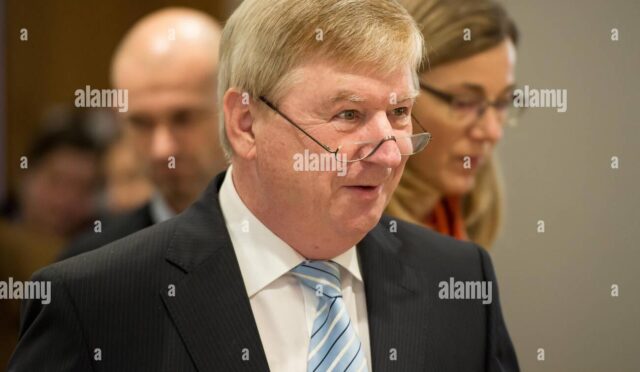Iran Boosts Uranium Enrichment Amid Negotiations
Iran’s production of highly enriched uranium continues to rise, according to a confidential report from the United Nations’ nuclear watchdog, the International Atomic Energy Agency (IAEA). This report comes amid assertions from Iran’s Foreign Minister, Abbas Araghchi, who insists that nuclear weapons are “unacceptable” for the country. The IAEA’s latest findings, which were reviewed by AFP, reveal a troubling increase in Iran’s stockpile of uranium enriched up to 60 percent, now nearing the critical threshold of 90 percent required for nuclear armament.
As of mid-May, the IAEA estimates Iran holds approximately 408.6 kilograms of uranium enriched to 60 percent, marking an increase of 133.8 kilograms since February. Alarmingly, Iran’s total enriched uranium stockpile has surpassed the limit established by the 2015 nuclear agreement, reaching around 9,247.6 kilograms. The IAEA has voiced severe concerns over this escalation, describing Tehran’s status as the only non-nuclear weapon state producing such material as “serious concern.”
Additionally, the IAEA has criticized Iran for its inadequate cooperation concerning nuclear oversight, particularly regarding unexplained nuclear materials found at undisclosed locations. This critique comes at a time when Iran is engaged in delicate negotiations with the United States about its nuclear program. Western governments have long harbored doubts about Iran’s intentions, suspecting attempts to develop nuclear weapon capabilities to counter Israel’s presumed arsenal.
Statements from Israel and Iran’s Response
Following the IAEA report, Israel’s government asserted its belief that Iran is “totally determined” to acquire nuclear weapons. Prime Minister Benjamin Netanyahu’s office released a statement claiming that the level of uranium enrichment currently seen in Iran is consistent only with countries actively pursuing nuclear capabilities, with no justification for civilian use. In stark contrast, Araghchi reiterated Tehran’s long-standing position that nuclear weapons are unacceptable, stating in a televised address, “If the issue is nuclear weapons, yes, we also consider this type of weapon unacceptable. We agree on this issue.”
Araghchi’s remarks came shortly after U.S. President Donald Trump emphasized that Iran must not obtain nuclear weapons, expressing optimism about reaching a timely agreement. However, Araghchi dampened speculation about an imminent deal, saying he was uncertain if negotiations would culminate soon. This reflects the tensions present in the ongoing discussions, as Iran and the U.S. have yet to resolve their major disputes, particularly regarding uranium enrichment.
Ongoing Negotiations and Future Implications
Iran has been involved in a series of negotiations with the United States to renegotiate the terms of the nuclear agreement that was abandoned by Trump in 2018. As the parties attempt to navigate complex differences, the next round of talks remains unspecified, although Araghchi has hinted at potential updates from Oman, the intermediary, in the coming days. Central to the negotiations is the contentious issue of Iran’s uranium enrichment, which Washington insists must cease, while Tehran argues for its rights under the nuclear Non-Proliferation Treaty.
Despite ongoing tensions, Trump indicated the talks with Iran were promising, notably suggesting to Netanyahu that any military action against Iran’s nuclear capabilities would be ill-timed. While military options remain on the table, Trump emphasized the need to allow room for diplomatic solutions first. Criticism from Israel regarding Iran’s nuclear program persists, underscoring the complex geopolitical dynamics at play as both nations tread carefully amid high stakes.
Implications of Historical Agreements and Sanctions
Following the U.S.’s withdrawal from the 2015 nuclear deal, a rigorous “maximum pressure” campaign was imposed on Iran, leading to the reintroduction of extensive sanctions. These measures were originally lifted in exchange for Iran’s commitment to limitations on its nuclear activities. In the initial year post-agreement, Iran adhered to the terms but gradually began reducing its compliance, leading to its current status of the largest stockpile of highly enriched uranium among states without a nuclear arsenal.
Uranium enriched to 60 percent by Iran starkly exceeds the 3.67 percent cap set by the 2015 agreement. Recently, Tehran has hinted that it may allow U.S. inspectors to join UN watchdogs for compliance monitoring should an agreement be finalized. Nuclear chief Mohammad Eslami communicated that Iran is open to reconsidering the inclusion of American inspectors if its fundamental demands are addressed, indicating a potential avenue for further diplomatic engagement.







